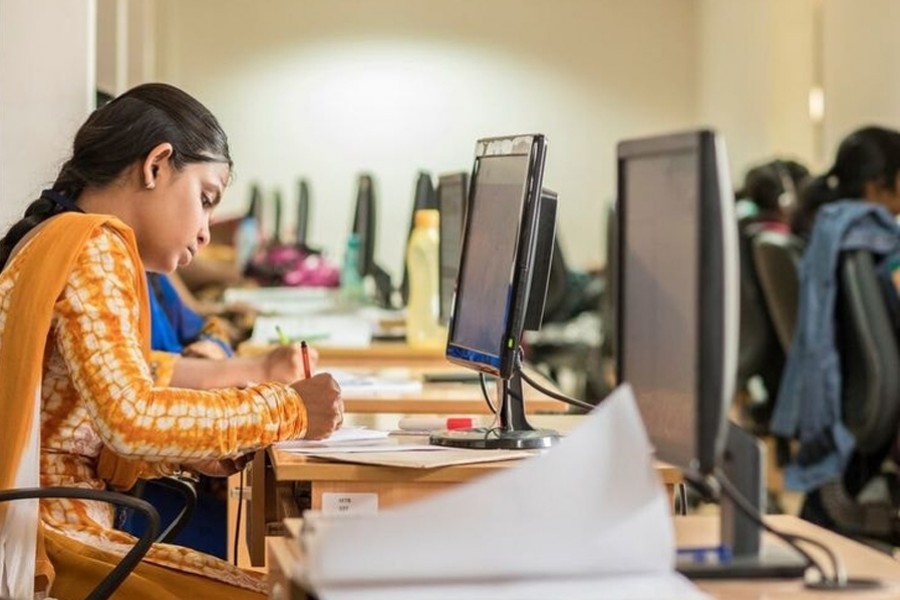One-third of female youths in the country have lost their jobs amid the Covid-19 pandemic, according to a study conducted by BRAC Institute of Governance and Development (BIGD).
The study showed that above 33 per cent of young women employed before the pandemic in the country were out of jobs in January 2021. The rate of joblessness in women was 29 per cent, three times higher than that of young men who comprise 11 per cent.
The findings were disclosed at a webinar styled 'Building a resilient ecosystem for women in the skills sector: challenges and prospects' organised by BIGD and BRAC's Skills Development Programme (SDP) marking World Youth Skills Day that falls on July 15.
Dr Imran Matin, executive director of BIGD, presented the report which said income of female youths who again found job later also dropped notably than that of male youths as it was 21 per cent for female while 10 per cent for male.
The study found that private tutoring, handicrafts, factory jobs, tailoring and light engineering are among the areas in which more young women used to find employment conventionally, but again these are among the hardest-hit economic areas during the pandemic.
The respondents think that the recovery of these particular areas would be tough and take time even when the pandemic is over, making it difficult for female youths to come back to paid employment.
Dr Matin said so many working women remaining out of paid work for such a long period may cause many to permanently leave the job market. "It may further reduce the already low rate of women's labour market participation."
Covid-19 shock may threaten to undo much of the progress made around women's empowerment unless corrective measures are taken, he added.
Joydeep Sinha Roy, head of operations of BRAC SDP, presented the findings at the event from SDP's implementation experiences over the years.
The presentation pointed out that culture and traditional gender role, gender stereotyping, lack of career guidance, safety concerns particularly fear of gender-based violence and sexual harassment, family responsibilities and availability of quality apprenticeship occupations are the major barriers to adolescent girls and young women's access to skills learning.
International Labour Organization (ILO)'s programme officer (M&E) for Skills 21 Project Tahmid Arif said changing the mindset is crucial, not only for skills training of female youths but also for their employment.
"Conducting training is not enough. We need to make sure that those who receive training also get an employment opportunity and the opportunity has to be sustainable," he added.
In-charge of BRAC's SDP Tasmiah Tabassum Rahman, BRAC's Gender, Justice and Diversity Programme director Nobonita Chowdhury, Natore-based Neda Society's executive director Jahanara Beauty also spoke on the occasion.


